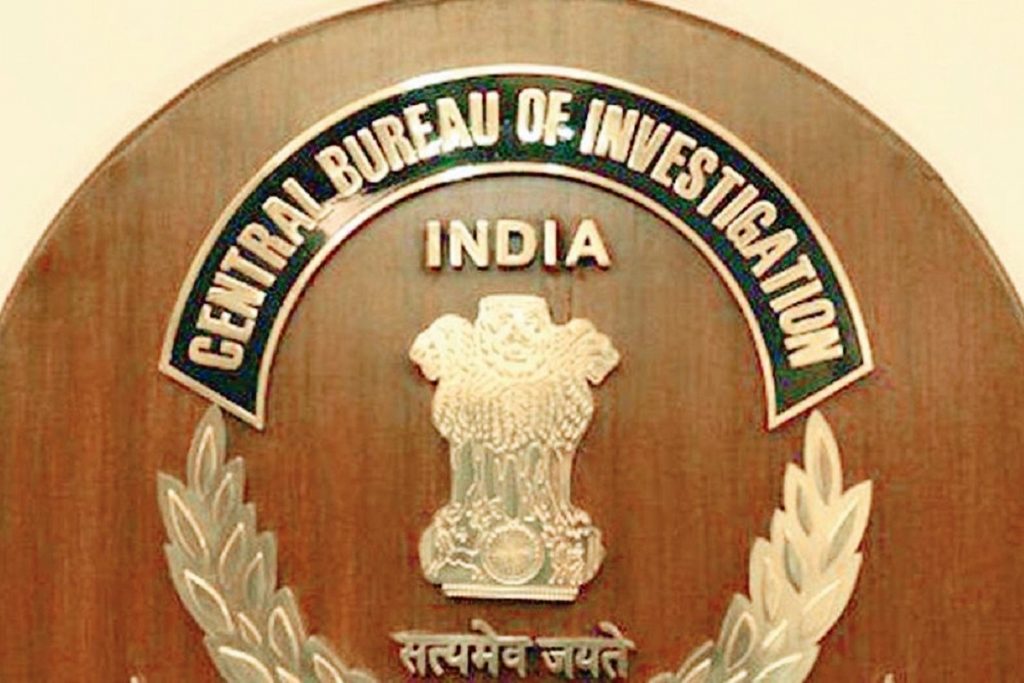SN Misra
The drubbing of BJP in West Bengal Assembly elections, the selective arrest of three politicians from TMC involved in the Narada scam, and dharna of CM Mamata Banerjee in front of CBI office display political pugilism at its worst. The scenario is rather surreal as erstwhile TMC politicians Mukul Roy and Suvendu Adhikari (both now in BJP), who were caught red-handed by Mathew Samuel accepting bribes in his sting operation have been left out and the Governor has authorised the arrest without the Speaker’s approval. The CBI was called caged parrot in May 2013 by Chief Justice Lodha in the coal block allocation case as he believed that they were “speaking in the master’s voice.”
The role of CBI as an independent crusader against corruption was questioned in the famous Vineet Narain case (1997) wherein it was alleged high-ranking politicians were not being probed properly by CBI despite clear evidence in the Jain diaries that they had benefited from Hawala transactions. The court had suggested that there is a need for insulation of CBI from extraneous influence to ensure continuance of their good work. This landmark judgement also suggested that the Central Vigilance Commissioner should have statutory status. CVC was mandated to oversee CBI’s functioning, with the CBI director having a two-year tenure. In 2014, the Supreme Court in a major judgement struck-down the government instruction that approval of government is required for pursuing investigation of officers from joint secretary rank and above as it violates Right to Equality. The court also suggested appointment of amicus curiae to provide assistance to the court on legal issues and exercise supervision over major corruption cases. This has led to a number of scams being investigated by CBI under the watch of the SC.
In the Narada scam, several TMC leaders were purportedly seen accepting cash on camera. The Calcutta High Court had ordered a CBI probe into the sting operation for which FIR was filed against 12 TMC leaders including Mukul Roy and Suvendu Adhikari and an IPS officer. The case has been dragging on since then. It would be interesting to note that Mathew Samuel also caught Bangaru Laxman, then BJP general secretary, accepting bribe in 2001.
In the instant case, the validity of the Governor’s authorisation to CBI to arrest TMC MLAs without the consent of the state is being questioned. In this connection it may be mentioned that Justice AM Khanwilkar and BR Gavai have decreed in 2020 that under Section 6 of DSPE Act 1946, consent of the state is mandatory before the CBI can go ahead with the prosecution. Incidentally states like Punjab, West Bengal, Rajasthan, Maharashtra, and Jharkhand have withdrawn their general consent given earlier to CBI to proceed with inquiry. The Speaker of West Bengal Assembly has said on record that he was not asked to give his consent before CBI officials went to the Governor. On the face of it, the approval given by the Governor appears to be ultra vires and at the behest of the Centre. The other issue that is being questioned is selective arrest and letting off two erstwhile TMC leaders who have now switched over to the BJP. Quite clearly the CBI has been acting in a partisan manner.
Fareed Rafiq Zakaria in his book “The Future of Freedom” has observed that unelected independent institutions have contributed more to the promotion of democracy than democratically elected representatives. He has referred to the pioneering role being played by judiciary and election commissioners in several democratic countries. In India also the SC has been playing an effective check and balance after supersession of judges in 1973. The CAG passed serious audit strictures on arbitrary coal block allocation. The Chief Election Commission under TN Seshan has also shown how free and fair elections can be conducted without muscle and money power hijacking the fate of the elections. On the contrary, institutions like CBI do not have an edifying record in terms of checkmating corruption in high places. Though its conviction rate is around 67 per cent, its reputation is sullied by its complicity with the party in power. Justice Lodha, in a recent interview, has said that “CBI continues to be caged parrot. There is no independence for CBI. That problem continues.
The political executive interference is there every time.” It’s indeed sad that during the worst crisis of pandemic that the country is passing through the Centre is using the Governor to play a political game just because it got a drubbing in the elections. It’s high time there is a political consensus not to use the CBI for sub-serving political ends. The caged parrot should be an apolitical roving vulture and crusader against corruption.
The writer teaches Constitutional Law.
